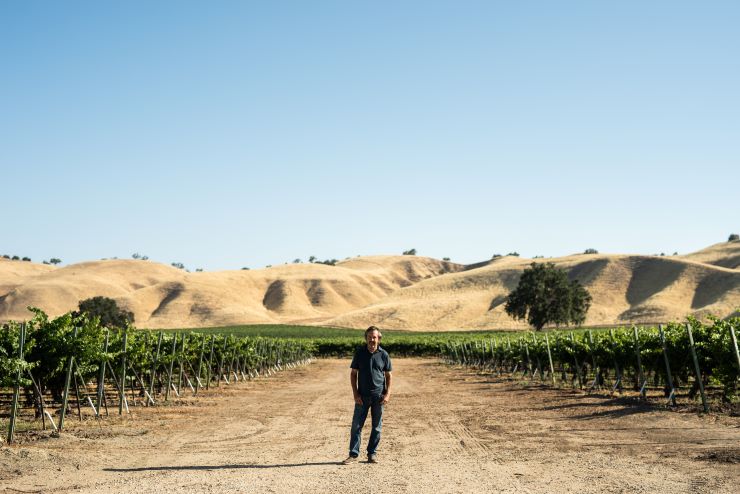
Steve Cass, Founder and President of Cass Winery and Geneseo Inn
In 1999, Steve Cass and his wife, Alice, bought 750 acres of–basically–ground squirrels and weeds in Paso Robles, and planted 160 acres of wine grapes the next year. Today, the land houses Cass Winery and Geneseo Inn. The winery specializes in the production of Rhone varietal estate-grown wines, with Geneseo being a luxurious boutique hotel perched above the vines.
In what ways is your business considered eco-friendly? First, 100 percent of the water used in winemaking, such as barrel and tank cleaning, is pumped back to our reservoir and used for vineyard irrigation. We also had a large solar system that supplied 100 percent of our power needs when originally designed. We are now a lot bigger and are upgrading the system to again be 100 percent. Upgrades include EV charges for all eight rooms Geneseo Inn, plus chargers at the tasting room and the barrel room and a lot more solar panel. Beyond this, we have two large chef gardens on the property with a total 12 beds all together. All produce grown is used in our café and during our winemaker dinners. We also raise cows on the property that are harvested for their prime cuts at winemaker dinners, and we use the ground steak for the famous Benny Burger at the tasting room. I should note we also have 15 owl boxes to manage gopher populations, rainwater runoff management and use zero herbicides. Our primary vineyard well pulls water from 1,100 feet; the water is high in salts and has a high PH, which you would never use in your house. We treat it with sulfuric acid, and the vines love it without affecting our neighbors water table.
What inspired you to become an eco-minded entrepreneur? It is good business. Customers love it as much as we do. Plus, you get lower cultivation costs by the elimination of herbicides and pesticides.
For readers who want to be more eco-conscious in their everyday lives, what do you recommend? In our part of California, water is the hottest issue. Agriculture uses a lot of water, and we work hard to minimize waste thru drip emitters, recycling and runoff management. If you are not a farmer, you can, as I did at my house, convert lawns to drought-tolerant gardens. Most household water usage is to water outside lawns and ornamentals. I took out 100 lawn sprinkles and replaced with drippers and very colorful drought-tolerant plants such as rosemary and lavender, plus others. Love the idea of a green business; be sure it is cost effective. If it is good for the environment and good for the wallet, you will have success.
What are your long-term goals for Cass Winery and its impact? We committed to our county to expand our Ag Education programs on many fronts, with plans to soon offer backyard gardening, beekeeping, grape harvest and winemaking, olive brining and oil making and apple cider programs.
